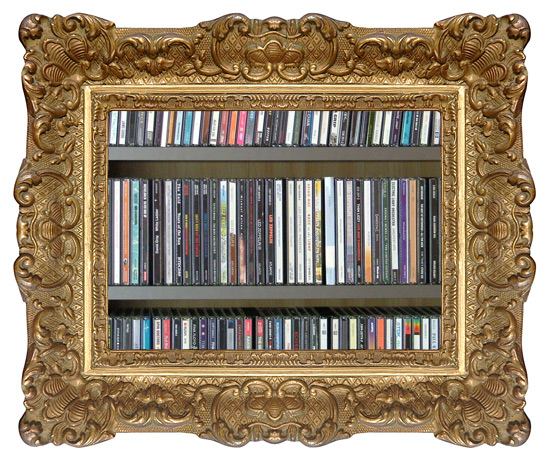If Content Costs Less, Is It Less Valuable?

I’ve always been a inconsistent purchaser of music. I’d like to say I was one of those people who buys a couple of albums a week but in truth I’m not. I know many people who are and I admire them but my purchasing habits have always been sporadic, coming in infrequent clusters rather than a constant stream. Not ideal but I’m far happier buying music like this than I am with streaming. Streaming is clearly part of the future, a natural reaction to technology and consumer habits. The likes of Spotify are being joined by You Tube who for some time have been the internet’s biggest music distribution channel. Whether or not I like it is irrelevant but the arguments about monetising online music ignore the effect the subscription/streaming model has on individuals’ relationship with particular records which have value to the listener beyond how much they cost to buy.
If I think about the records which mean the most to me, I have invested time and effort into listening to them, giving them my undivided attention over and over again. While I’m sure you can do that when streaming I know that for me the bewildering choice is too distracting for me to concentrate on what is in front of me at that moment. For me to actually buy a physical copy of an album represents a statement of intent that I’m going to invest time in getting to know this recording. Fundamentally the relationship is different from that which I have with music I stream.
Purchasing v Streaming
I have always thought that I want to own my music but stream my films. A characteristic of really great music for me is that it becomes more rewarding with repeated listening. I have always been rather suspicious of music which is instantly appealing as all too often I realise that all of its appeal was superficial and it doesn’t reward repeated listening. The example of streaming video content illustrates my point about investment and of value as opposed to cost. A few years ago I bought an Apple TV. The main reason I bought it was because of Airplay but I found that over time I bought a few TV series off the iTunes store. I thought them quite expensive and after a few purchases I decided to get a Netflix subscription because the same content was available and it would cost me far less than buying series. Financially the decision makes perfect sense but in terms of commitment they couldn’t be more different. I watched every episode of the expensive box sets I bought. The next series (of the same programme) I watched on my Netflix subscription I abandoned halfway through. Not because it wasn’t good but because It was no more important that any of the thousands of titles available as part of my subscription. It cost less but it had less perceived value to me.
Who Benefits From Free?
Consumers - Will the consumer always benefit from free? If you pay less for something, you win because you can make your limited resources go further. Or is it more complicated than that? I’d suggest that while on one level consumers do win, on another level they lose out. In a similar way to the Netflix example, the recent example of Apple giving away U2’s new album to all iTunes users (it should noted that U2 didn’t give away their album, they sold it to Apple for a considerable fee) resulted in a recording with no perceived value to the consumer. In this case not only did they not pay for it but they didn’t even choose it. Is it any surprise that it was valued so little by so many?
Creatives/Content Producers - They don’t benefit, the effects of decreasing budgets on this sector are so well documented that I won’t try to add to it here. Suffice it to say that if a job isn’t worth doing then people who can do something else will. I never thought I’d find myself quoting Taylor Swift but she said: “Music is art. Art is Important and rare, rare things are valuable. Valuable things should be paid for”. I agree, not just for the benefit of the artist but for the benefit of the listener.